Addressing the Impact on Patient Trust and Care Quality
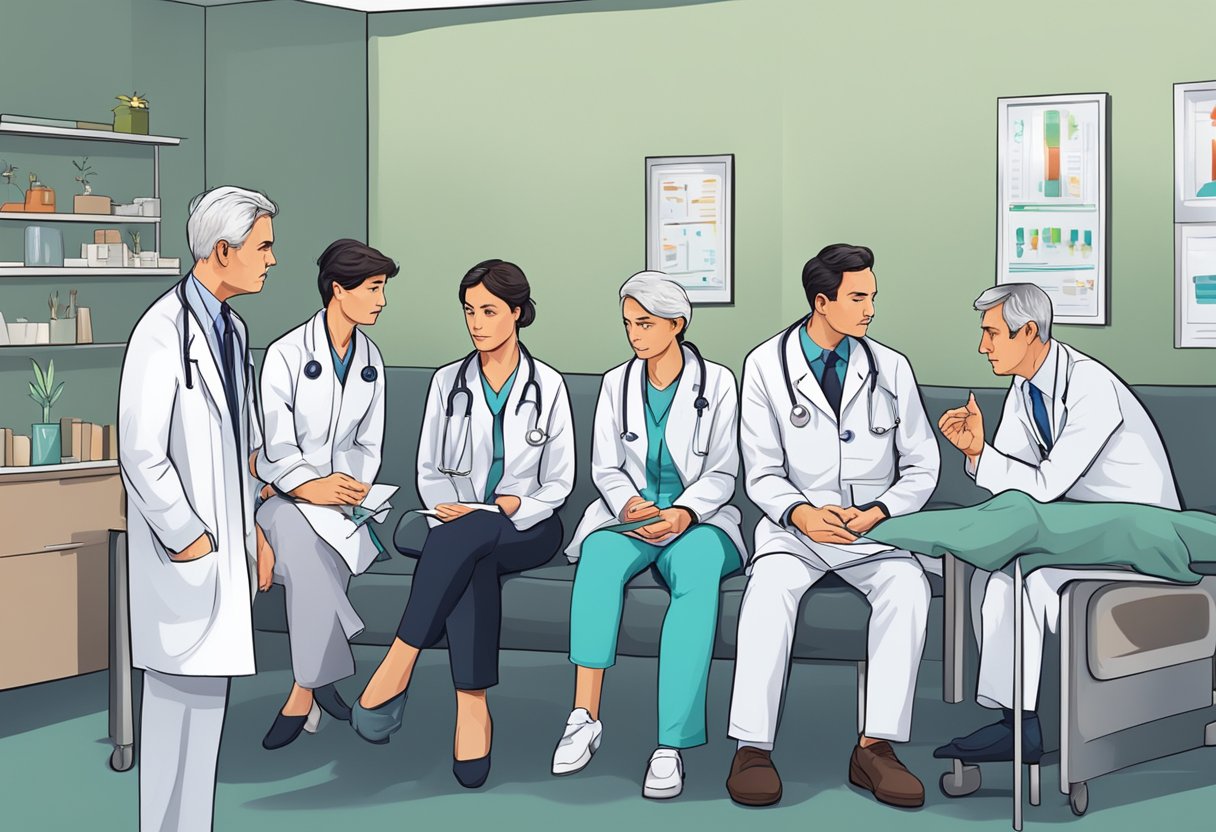
Engaging with healthcare providers is crucial to overcoming disease; however, doctors’ perceived lack of empathy can intensify the struggle. During our battles with lymphoma, interactions with healthcare professionals often felt clinical and impersonal.
We, as survivors, sought compassion alongside medical expertise, desiring to be seen as individuals rather than just a case number. This integral human element would have vastly improved our journey towards recovery.
Having faced lymphoma, we intimately understand the dynamics of patient-doctor relationships. An emotionally supportive doctor not only aids in healing but also strengthens our resolve through the hardships of treatment. The role of a physician extends beyond the bounds of medical interventions; it should encompass leadership shaped by empathy and keen attention to the lived experiences of patients. Our collective resilience is bolstered when we feel genuinely cared for by those entrusted with our health.
Key Takeaways
- Empathetic doctor-patient relationships enhance the healing process.
- Physician leadership should be rooted in understanding patient experiences.
- Effective healthcare encompasses emotional support, not just clinical treatment.
The State of Healthcare and The Role of Doctors
Our journey through the American healthcare system often leaves us with a deep sense of being overlooked, waged in a battle where compassion is scarce.
American Healthcare System
Healthcare in the United States presents a paradox of high expenditure with unsatisfying outcomes for many. We spend more per capita on healthcare than any other developed nation. Yet, our system faces criticism over its ability to honestly care for patients’ well-being, especially for us who fought against odds like lymphoma cancer.
Medical professionals hold the keys to this vast, often bewildering healthcare landscape. They navigate us through illness with clinical expertise, but the role of these doctors extends beyond diagnoses and treatments. In an ideal setting, they’re not just healers but guides who consider our emotional battles. In practice, however, we too frequently experience a disconnect. During our most brutal fights, as men finding our footing post-cancer, we grapple not only with the disease but also with a lack of emotional engagement from some healthcare providers.
Our encounters may leave us feeling reduced to data points on paper. With survival rates and clinical trials dominating conversations, the health system occasionally misses the person beneath the patient label. The American healthcare system has an opportunity to mend its broken aspects by fostering an environment where doctors champion empathy, where we aren’t just survivors but individuals seen and heard in our entirety.
Challenges Faced by Doctors
As medical professionals, we face many pressures that can compromise our ability to provide the compassionate care we strive to offer. Whether it stems from the system, workload, or public health crises, each stressor profoundly alters our practice and well-being.
Burnout and Physician Culture
The culture within the medical field can often incongruously mix high demands with insufficient support, leading to burnout. This emotional, physical, and mental exhaustion is exacerbated by our need to perform at our best. We’re expected to maintain a stoic demeanor, suppress emotions, and prioritize patient care, often to the detriment of our well-being. This unyielding environment fosters a sense of isolation rather than camaraderie as we grapple with the relentless pace and pressure.
- Symptoms of burnout among doctors include:
- Chronic fatigue
- Detachment
- Feelings of ineffectiveness
Impact of COVID-19 on Medical Professionals
The Covid-19 pandemic thrust us into an unprecedented global health crisis. Facing an unknown virus, our daily routines were upended, with an overwhelming influx of patients stretching our resources thin. The constant risk of infection and the heartbreak of losing patients or colleagues have left indelible marks on us.
- Challenges during the pandemic:
- Risk of infection: We had to confront the fear for our safety and our families.
- Patient surge: The high volume of patients compromised our ability to deliver individualized care.
- Emotional toll: The daily loss and suffering weighed heavily on us.
As we collaborate with our peers and serve our patients, these issues remind us that addressing our challenges is crucial for the sustainability of quality healthcare.
Physician Leadership and Its Influence
As survivors who have faced the trials of lymphoma cancer, we understand the profound impact that empathetic and decisive leadership can have on patient care within the medical community. Strong physician leadership shapes the culture of care and can transform our experience from feeling like mere numbers to valued individuals.
Leadership in Medicine
Physician leaders are responsible for steering healthcare toward compassionate care while ensuring clinical excellence. In our journey, the difference between a leader who stands distant and one actively involved in our treatment course is stark. Leaders who embrace an empathetic approach not only uplift our spirits but also profoundly influence the quality and outcome of our care. Their proactive engagement can make us feel heard and respected during our most vulnerable moments.
The Permanente Medical Group Insights
Dr. Robert Pearl, the former CEO of The Permanente Medical Group, exemplifies proactive leadership. Under his guidance, the medical group thrived, focusing on innovation and high-quality care that resonates with our needs as patients. The unit’s commitment to placing patients at the forefront is a testament to what effective physician leadership can achieve. We’ve seen that when leaders like him make patient-centric decisions, the entire healthcare ecosystem benefits, delivering care that’s not only efficient but also empathetic to our struggles.
Medical Education and Its Outcomes

In the path from medical school to the bedside, doctors are trained extensively in science and treatment protocols, yet sometimes, the nurturing of bedside manners and patient connection falls behind.
From Medical School to Practice
Medical school lays the foundation of knowledge and skills that shape future physicians. They immerse themselves in rigorous courses and clinical rotations, focusing on mastering the science of medicine. As they transition from students to practicing doctors, the leap is significant. It’s not just about diagnosing and prescribing; it’s about seeing the person behind the illness.
We’ve observed our mentors and professors, but it’s in the wards where theory meets reality. We learn to balance the profession’s demands with the needs of patients, who often feel like they’re just a number.
Specialization Versus Primary Care
Every medical graduate’s crossroads is deciding between specializing and becoming a primary care physician. Primary care physicians serve as the first line of contact and play a crucial role in continuous care. They are often the ones who see the subtle signs that something more serious might be confronting us. On the other hand, specialists dive deep into particular fields of medicine, acquiring expertise that can be lifesaving, specifically for conditions like the lymphoma we’ve battled. The medical education ecosystem aims to cultivate both, yet we notice a tilt towards specialization, possibly at the cost of primary care’s empathic, generalist approach.
Engaging effectively with patients goes beyond what is taught; it’s about fostering trust and understanding uniquely individual experiences, like our journey with lymphoma, which has taught us the profound value of empathy in healing.
Patient-Doctor Relationship
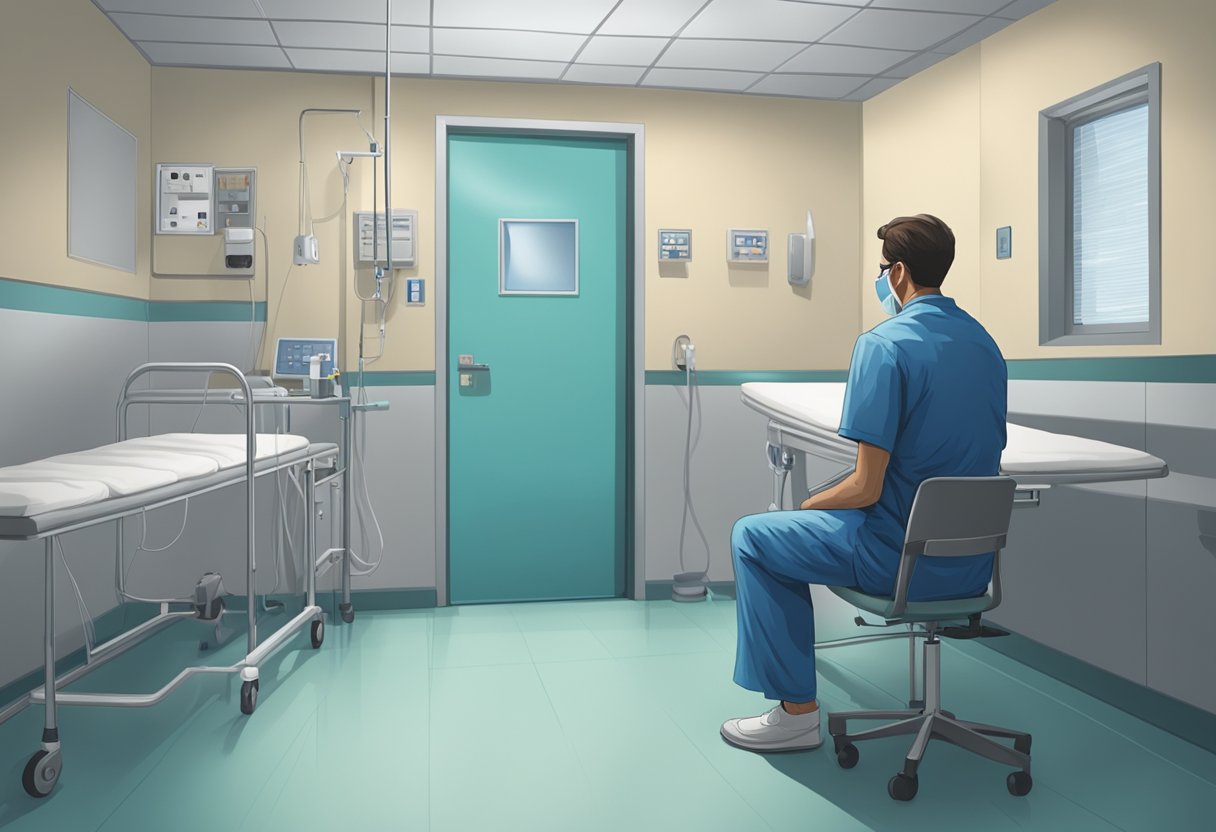
In our journeys through healing, the quality of interaction with our physicians shapes our health outcomes.
Building a Connection
We seek a bond that fosters trust and understanding when we meet with our doctors. Our lives and well-being hinge on their ability to listen and respond to our health concerns with skill and humanity. As survivors of lymphoma, we’ve come to realize that a doctor’s ability to connect with us on a personal level significantly influences our path to recovery. This connection goes beyond medical expertise; it is the foundation for mutual respect and the cornerstone of our care.
Importance of Compassion and Empathy
We yearn for compassion and empathy from our healthcare providers. It’s evident that when doctors regard us with genuine concern, our trust amplifies, and healing becomes a shared goal. We’re not just cases to be managed, but people living with a condition that touches every aspect of our lives. Our encounters with doctors should leave us feeling heard and valued, not like we’re merely another number in a long line of patients. The presence of empathy in our interactions can be the salve that soothes our worries in the vulnerable journey of cancer recovery.
Influence of Technology on Healthcare
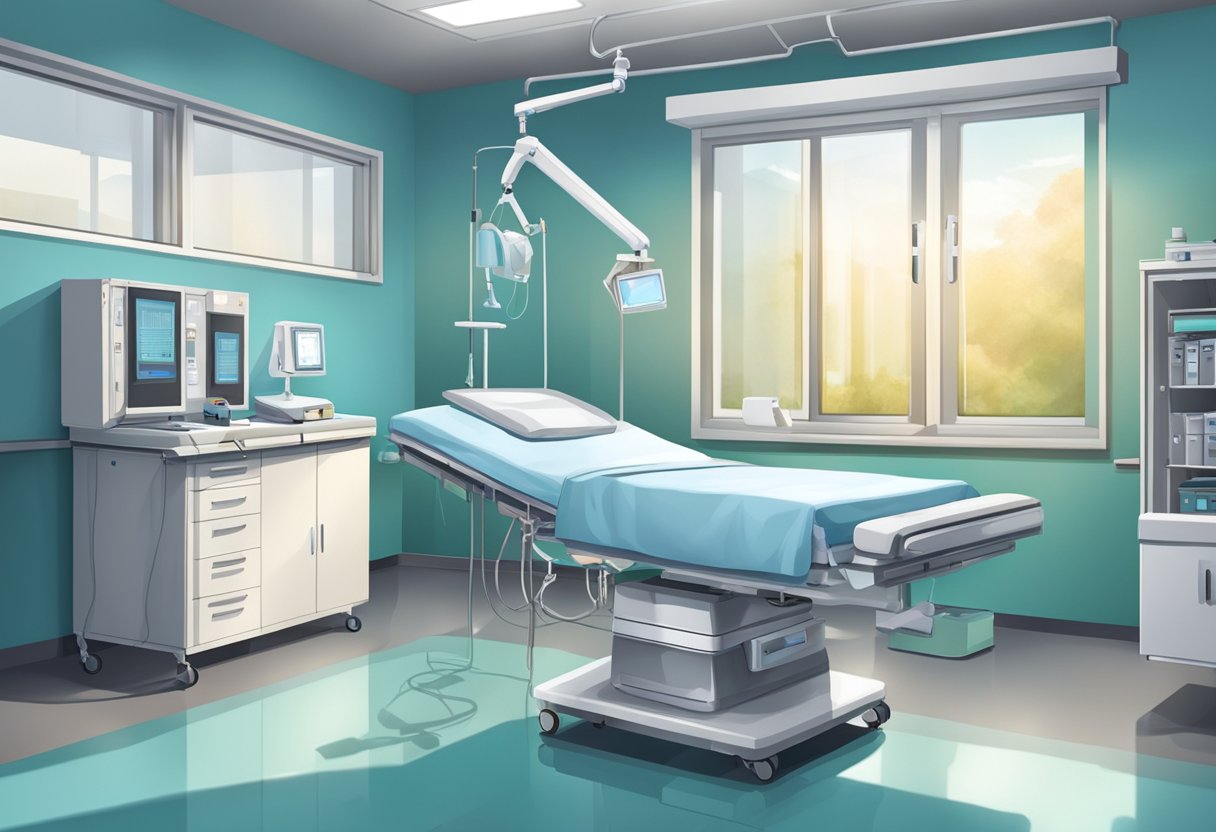
The advent of information technology and innovative interventions in healthcare has profoundly reshaped our experiences with medical treatment, especially for those of us who have faced life-threatening illnesses like lymphoma cancer.
Information Technology in Medicine
In healthcare, information technology is a beacon of hope, offering more than just electronic health records. We now have access to tools that keep us from being just a number in the system. Personal health tracking devices and mobile health applications empower us to monitor our well-being and communicate effectively with healthcare professionals. These innovations afford us a level of engagement in our care that was once difficult to achieve.
- Electronic Health Records (EHRs): Digitized patient data for comprehensive healthcare management.
- Telemedicine: Remote diagnosis and treatment facilitating continual care without the need for physical presence.
Innovations and Interventions
Innovative interventions leveraging technology have led to more effective treatment approaches. As survivors, technology offers us an avenue to receive prompt and personalized healthcare interventions. For example, we can now benefit from:
- Precision Medicine: Tailored therapy strategies based on individual genetic profiles.
- Robotics and AI: Helping surgeons perform complicated procedures with optimal precision.
In these ways, technology serves as a tool and a compassionate ally in our fight against cancer, providing enduring support where, at times, human capacity may fall short.
Perspectives on Healthcare Reform
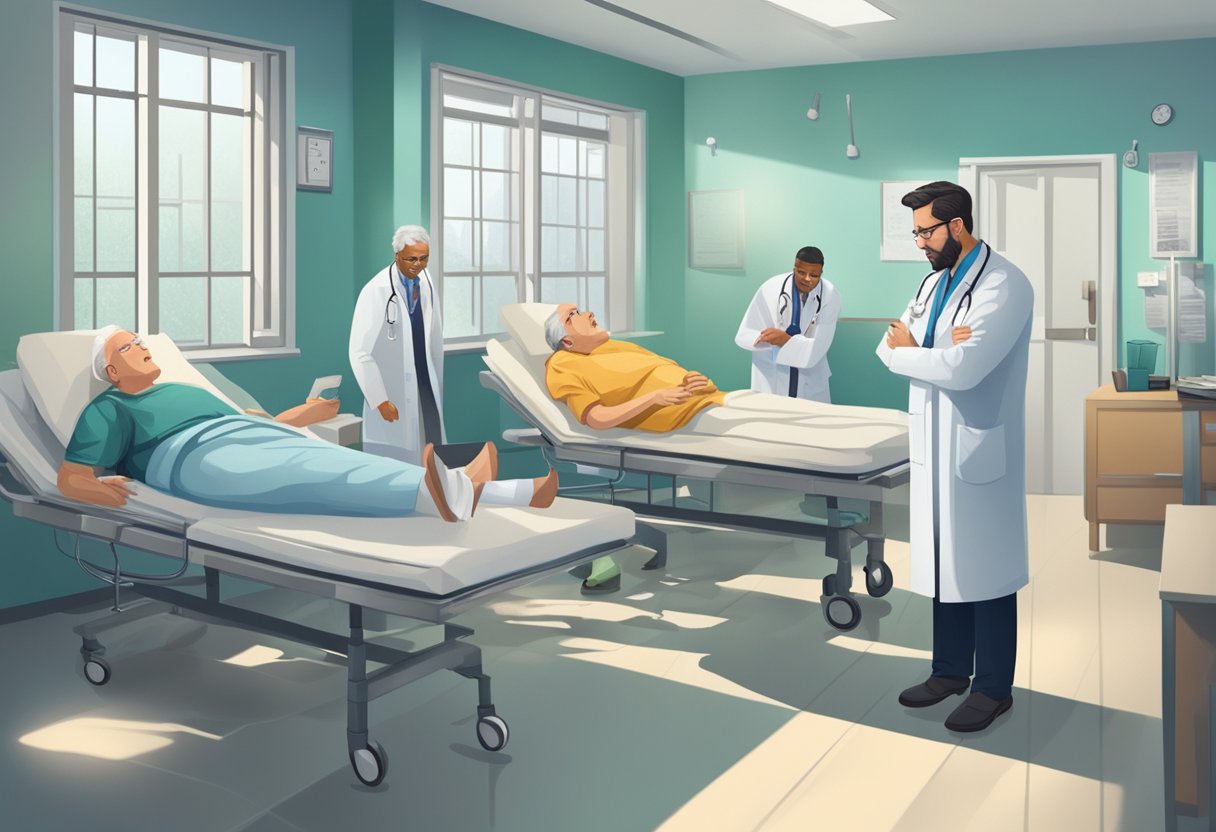
We grapple with the deep-rooted challenges of policy reform and transforming healthcare culture in our quest for a more effective and compassionate healthcare system.
As survivors, we seek a system where patients aren’t mere numbers, where each treatment is delivered with empathy, specifically addressing men’s unique experiences with conditions like lymphoma.
Policy Changes and Government Role
- Policy Initiatives:
- Ensure patient-centric legislation
- Prioritize funding for emotional support services
- Government’s Part:
- Hold institutions accountable for cultural shift
- Encourage wholesome support alongside medical treatment
The government must steer policy initiatives that place patients at the forefront, encompassing more than just physical treatment to include psychological wellness. By setting benchmarks for compassionate care, policymakers can foster a healthcare culture where every man stands tall against his battle with cancer, assured of holistic support.
Healthcare System Transformation
- Cultural Evolution:
- The transition from impersonal treatment to tailored healthcare journeys
- Promote supportive environments that value individual patient stories
- Systemic Shifts:
- Integrate team-based care with diverse specialists.
- Incentivize programs that blend physical health and emotional well-being
We yearn for a healthcare system undergoing a cultural evolution, where doctors connect personally with us, recognizing each story of resilience and crafting individualized care trajectories. Systemic shifts must include team-based approaches that marry clinical excellence with unwavering emotional support, particularly for men navigating the tumultuous path of cancer survivorship.
Reflections on the Future of Medicine
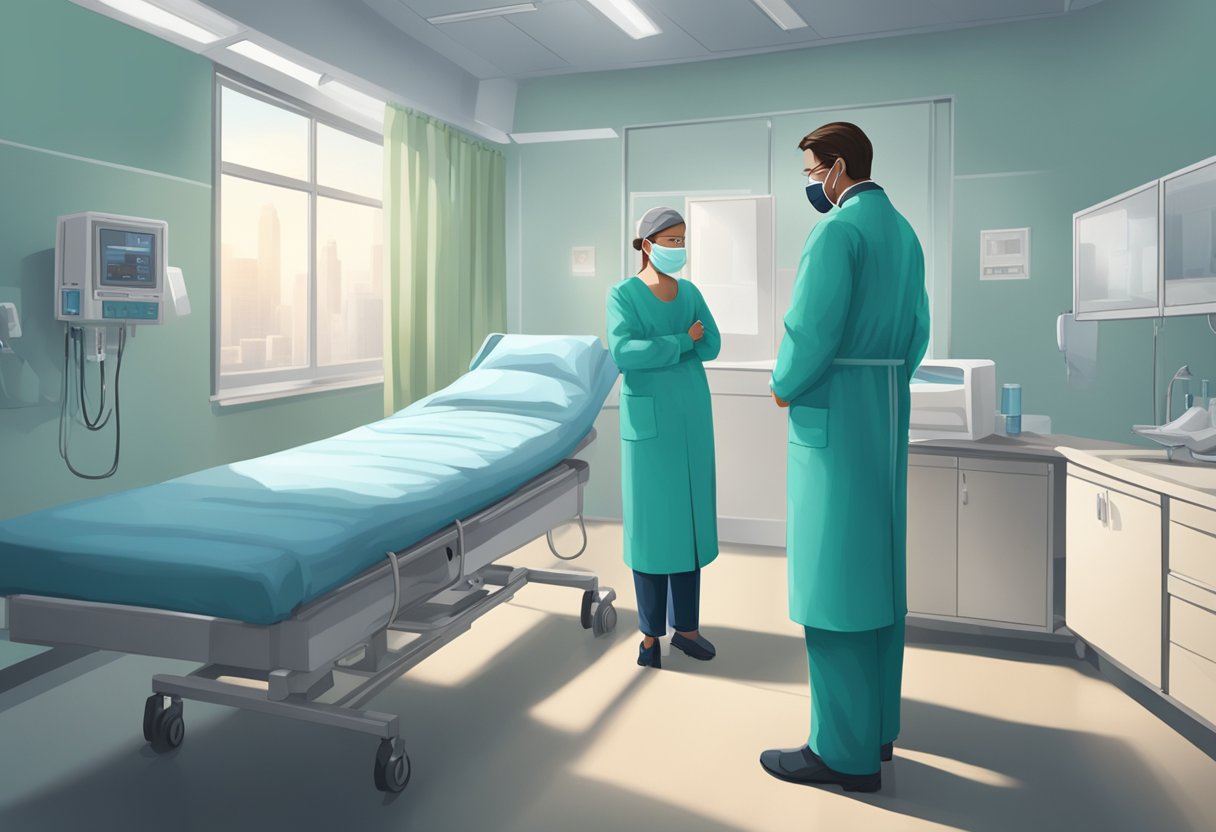
As survivors and advocates, we recognize that the road ahead requires a deep consideration of how our experiences will shape the future of medicine. From the trenches of personal battles to a broader societal approach, we must ensure advancements resonate with every individual’s need for empathy and comprehensive care.
Adaptations After the Pandemic
The pandemic has urged us to rethink our health strategies, not just in crisis management but also in everyday medical practices. We learned that plans must be fluid, expectations may shift, and adaptation is not just a choice but a necessity for survival. Medical professionals had to quickly adopt telehealth options, offering remote consultations that many of us found more accessible and less disruptive. This transition to digital healthcare, while initially a response to a crisis, demonstrated a potential path for more flexible and patient-centric care moving forward.
Evolving Doctor-Patient Dynamics
Every encounter with our doctors can leave lasting impressions on us as patients. Amidst the fight with lymphoma, a condition afflicting thousands of men each year, we valued those healthcare professionals who saw us as more than a file number—they recognized our lives beyond the illness.
This empathetic approach must become a cornerstone in the new dynamics between doctors and patients. The future holds a promise where physicians treat conditions and nurture well-being, considering our mental fortitude as much as our physical resilience.
Final Thoughts…
During our journey through lymphoma diagnosis and treatment, we encountered a clinical coldness at times, as if we were mere entries in a medical log. This chasm between the medical team and us left us yearning for a touch of humanity, a sign that we were seen as individuals with unique stories and struggles, not as cases.
We are not just survivors; we are men who’ve grappled with a profound challenge and seek understanding from those entrusted with our care. Through this lens, we must stress the value of empathy and emotional backing in healthcare—especially for us, as we often face stereotypes that discourage the expression of our vulnerabilities.
Let us champion a shift in the medical paradigm, where compassion roots as profoundly as scientific inquiry. We envision a space where doctors join survivors on the front lines with a blend of medical expertise and empathetic engagement, recognizing the individuality of each journey.
Healthcare providers can embrace active listening and personalized care protocols to foster a more empathetic environment. Through initiatives that promote such relational dynamics, we can transform the healthcare landscape into one where emotional support is an integral part of the healing process.
As we stand together, let us advocate for this evolution, where each of us is more than a diagnosis, where every treatment plan is a badge of our unique fight—where, in the eyes of our caregivers, we are not just another number. -T
Frequently Asked Questions
Navigating the healthcare system can be challenging, especially when facing a lack of empathy from doctors. We aim to empower each other by sharing the right questions and steps to take in these situations.
How do I address a doctor’s lack of empathy during my consultation?
During consultations, we find it effective to express our feelings clearly. Statements like “I feel my concerns are not being fully heard” can prompt physicians to become more attentive to our emotional needs.
What actions can I take if I believe a doctor has behaved unethically towards me?
If we suspect unethical behavior, we document and report the incident to the appropriate medical board. We make sure our voices are heard, and professionals review the incident.
What constitutes unprofessional conduct in the medical profession, and how is it reported?
Unprofessional conduct includes negligence, breach of confidentiality, or disrespect. We report such conduct through official channels like hospital administration or professional medical associations.
How can I effectively communicate my dissatisfaction with a doctor’s care?
We communicate dissatisfaction by scheduling a follow-up appointment or writing a letter outlining specific instances that caused our dissatisfaction. This way, we give feedback directly and allow the doctor to respond.
What are the steps to take when considering changing my healthcare provider due to poor interactions?
When we contemplate changing providers due to poor interactions, we research new specialists with a reputation for empathy, seek referrals from trusted individuals, and then transfer our medical records to the new provider.
How can I ensure that a healthcare professional who seems indifferent takes my concerns seriously?
We assert our concerns by being transparent about expectations and insisting on thorough explanations for treatments and outcomes. This approach can encourage a more engaged response from healthcare professionals.
